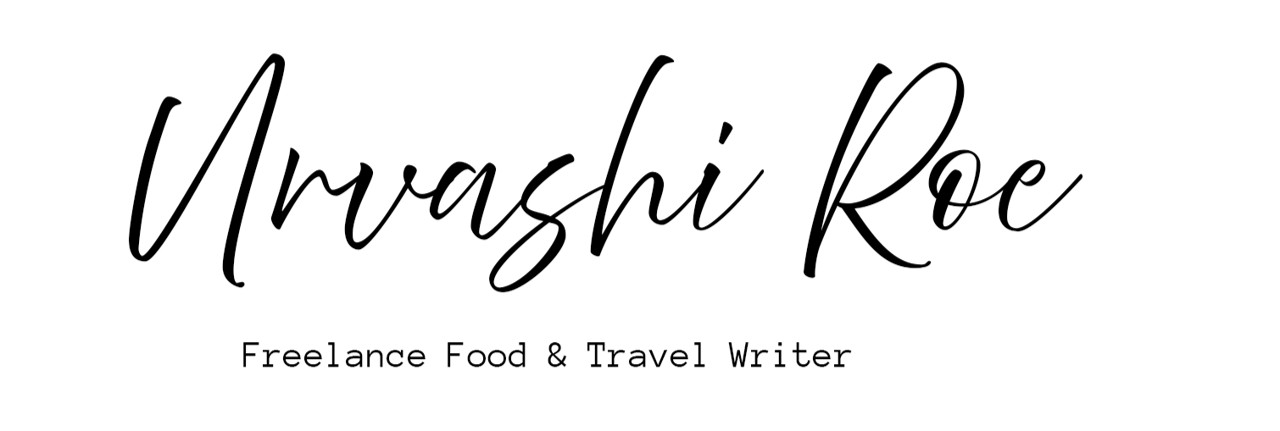My trip to Morocco was led by food and our base in Ouarzazate afforded us many day trips in search of traditional dishes and ingredients. On learning of my interest in food, our host at Dar Daif, Jean Paul, sent us along the Dades Valley in search of dried rose petals and rosewater.
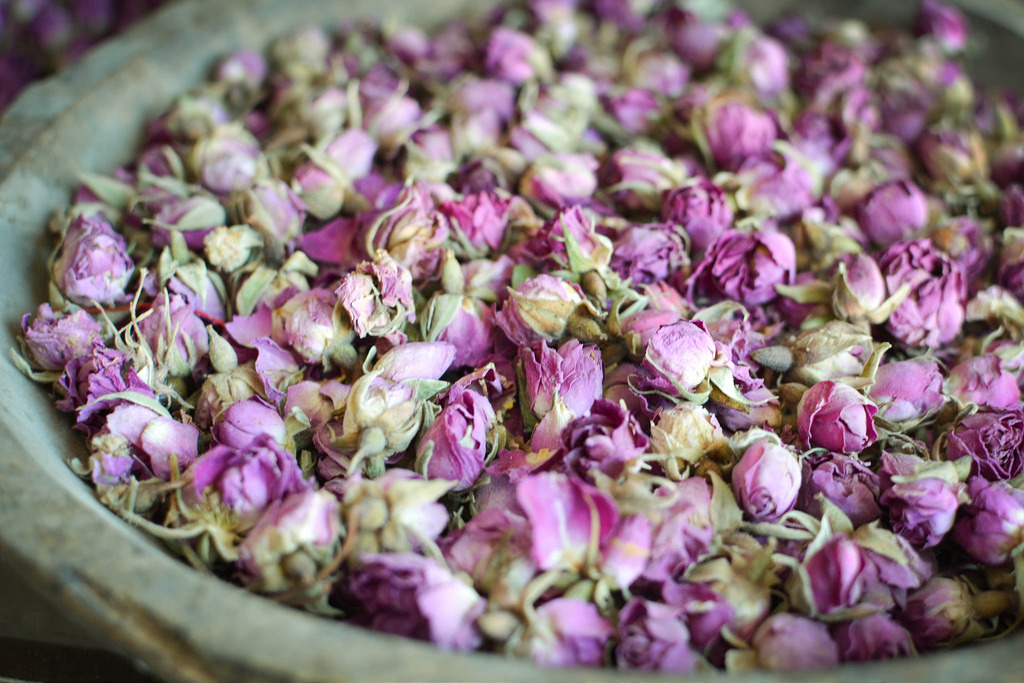
Eastwards along the Dades Valley
His directions were simple. ‘Drive east until you come to the town square and then take a left up into the gorges but beware the small roads’. The Dades Valley runs eastwards from Ouarzazate with hundreds of Kasbahs lining the route. We drove in a straight line through villages and palm groves with the stunning Jebel Sarhro lunar landscape to our side. It was almost eery to see palm trees along this mass of amber stone. Bleak in the scorching sunshine.
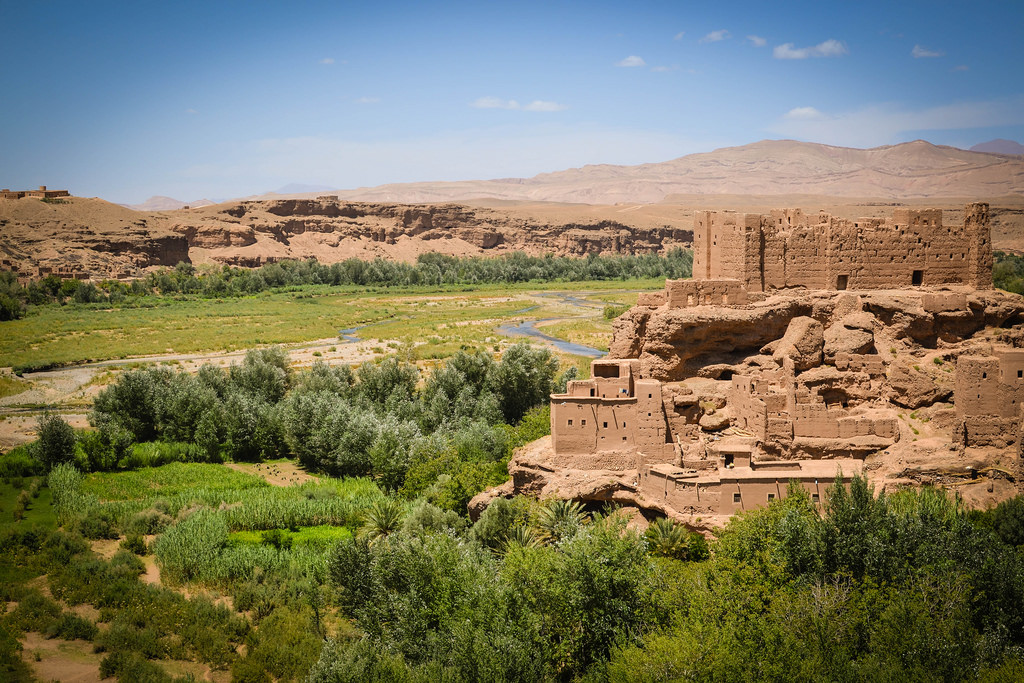
The Dades River flows through the valley and we could barely see traces of it against an extraordinary backdrop of spectacular rock formations. It is this river that feeds the ‘El Kelaa M’Gouna’ – the Valley of the Roses. The roses bushes were difficult to see on our visit as the Damascus Rose blooms only in May. Women from the surrounding villages pick 700 tonnes of rose petals, which are then made into rosewater at local distilleries. There are many now but we visited the ‘Unite de Distillation de Rose’ which is a co-operative of five farms.
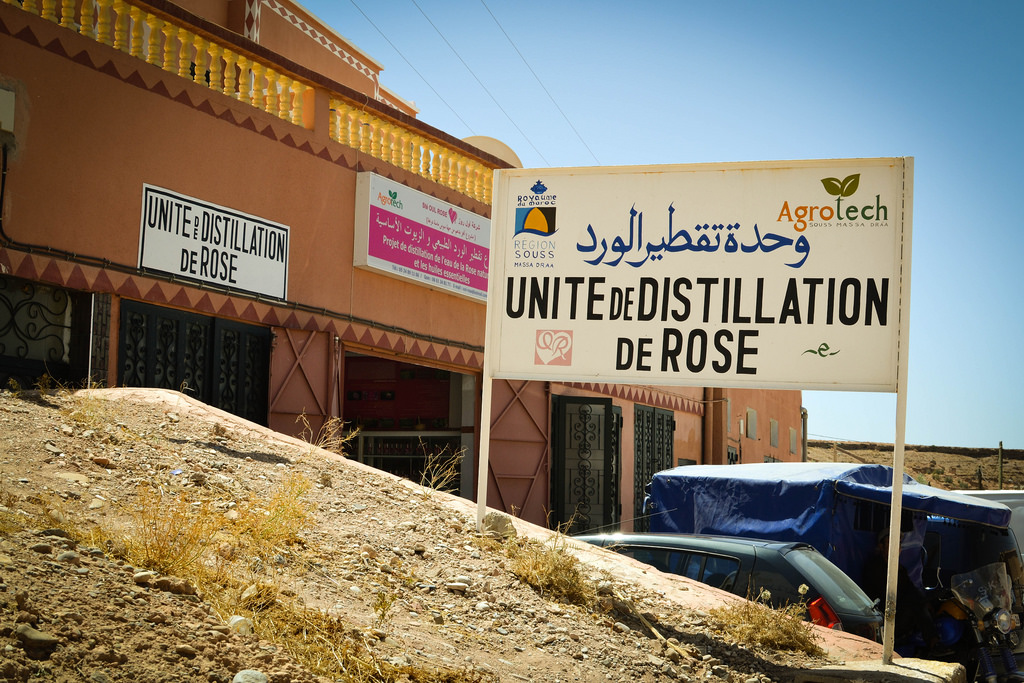
A simple distillation process to extract water and oil
There is a single still which is immaculately clean. No distilling was taking place but we could smell roses so intensely. It was a heady smell that made me dizzy.
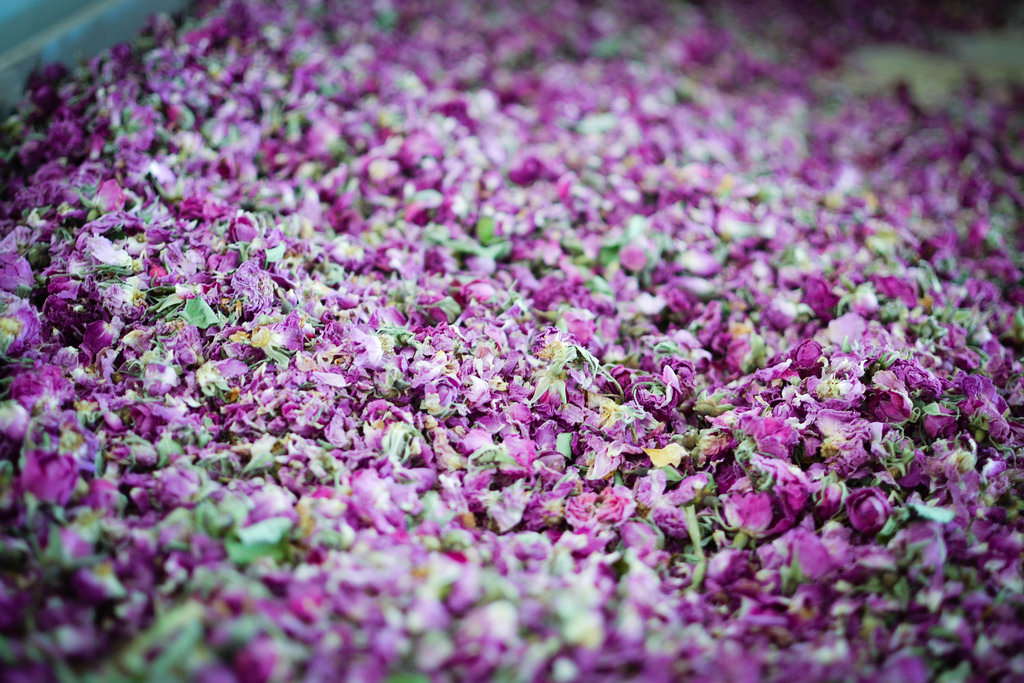
We learned that every element of the rose is used to make rose oil, rosewater for cosmetics and consumption, rose petals for consumption and western ‘pot pourri’. The rosewater is simply a by product of the distillation process to extract the oil from the rose.
The benefits and uses are wide reaching
Aside from using rosewater in cooking, the villagers use it as a tonic for the face and as an everyday perfume. It has anti inflammatory properties and so is quite soothing for irritated skin. It’s also rich in antioxidants and can help strengthen and regenerate skin tissue hence being used so widely in Western anti ageing cosmetics and sun screen protection. Too much sun destroys elastin which gives your skin its ability to stretch. Rosewater may help to reduce this damage and prevent wrinkles. I don’t know how much of that is scientifically proven but looking at the beautiful skin of the local village women, I was sucked in and bought the lot!
Simple to use in everyday cooking
Rosewater and Rose Syrup are easy to incorporate into everyday cooking. I love these Spiced Oats with Pistachio and Rose from the beautiful Gourmantine blog…
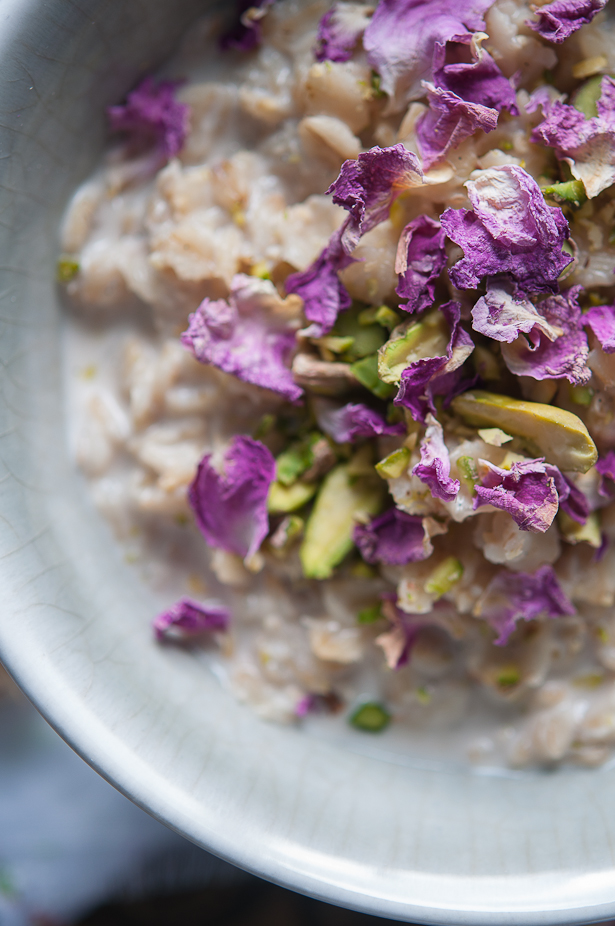
The delicate roses protected by equally delicate daggers
We took a left up the valley as Jean-Paul instructed and were rewarded with beautiful ochre gorges.
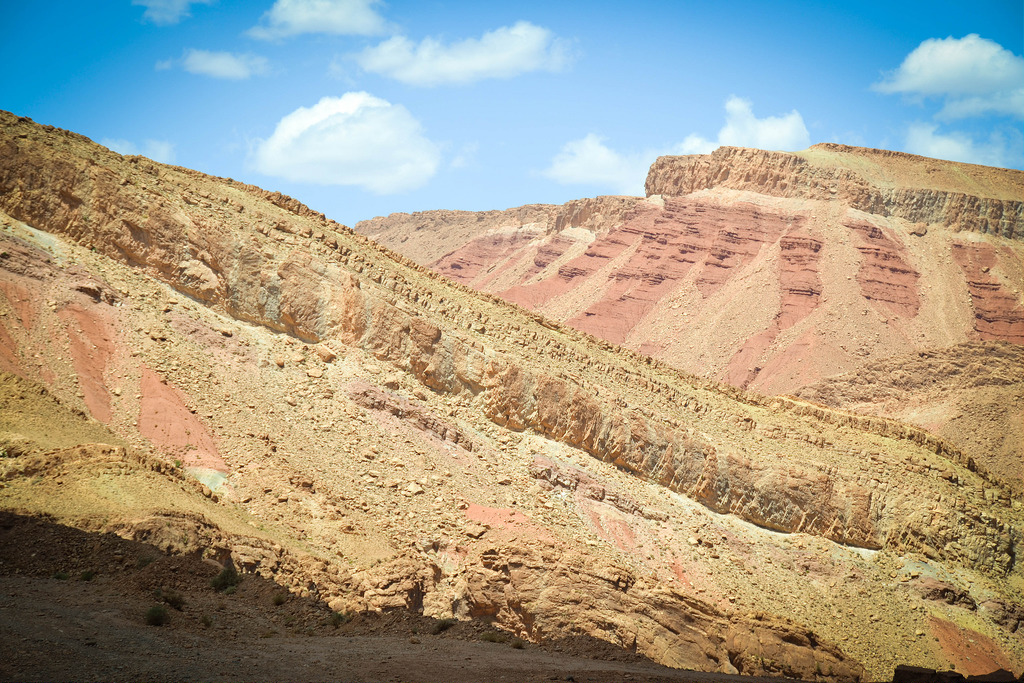
What I found fascinating as we climbed up and around each corner there were craftsmen at work carving daggers. The Berbers built kasbahs along this valley to protect themselves against desert bandits and the like and ‘El Kelaa M’Gouna’ is equally well known for its beautiful daggers. We walked barefoot through and over the cooling river water to visit another co-operative.
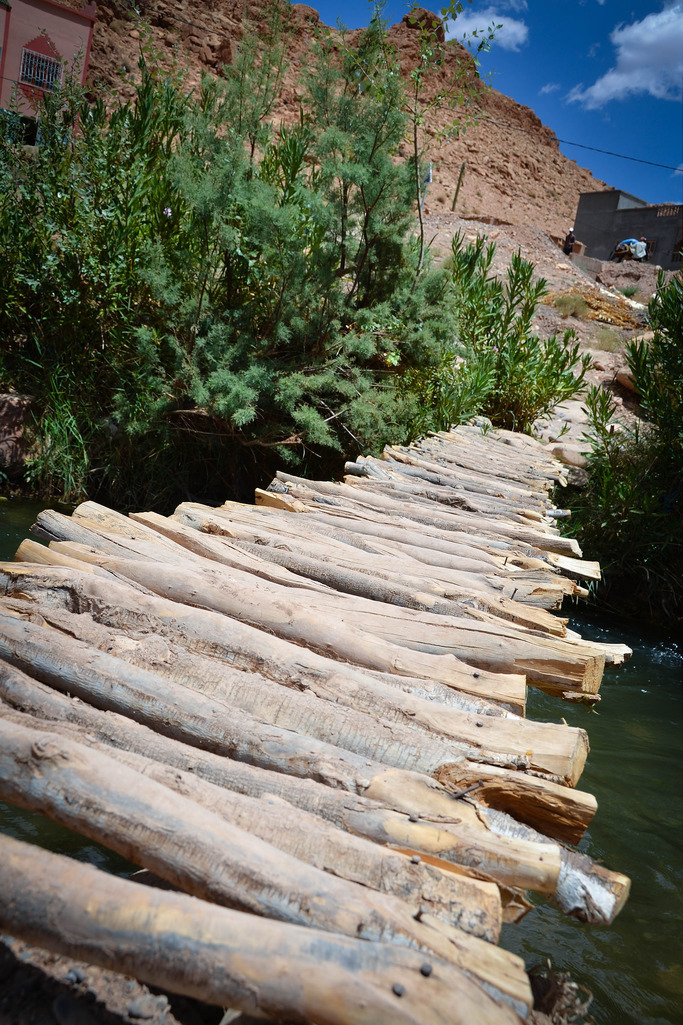
We sat a while to take in their delicate handiwork and hide from the sun. We learned the ornate curved styles were Persian in origin and the flatter, straighter blades were traditional to the Berber or desert travellers.
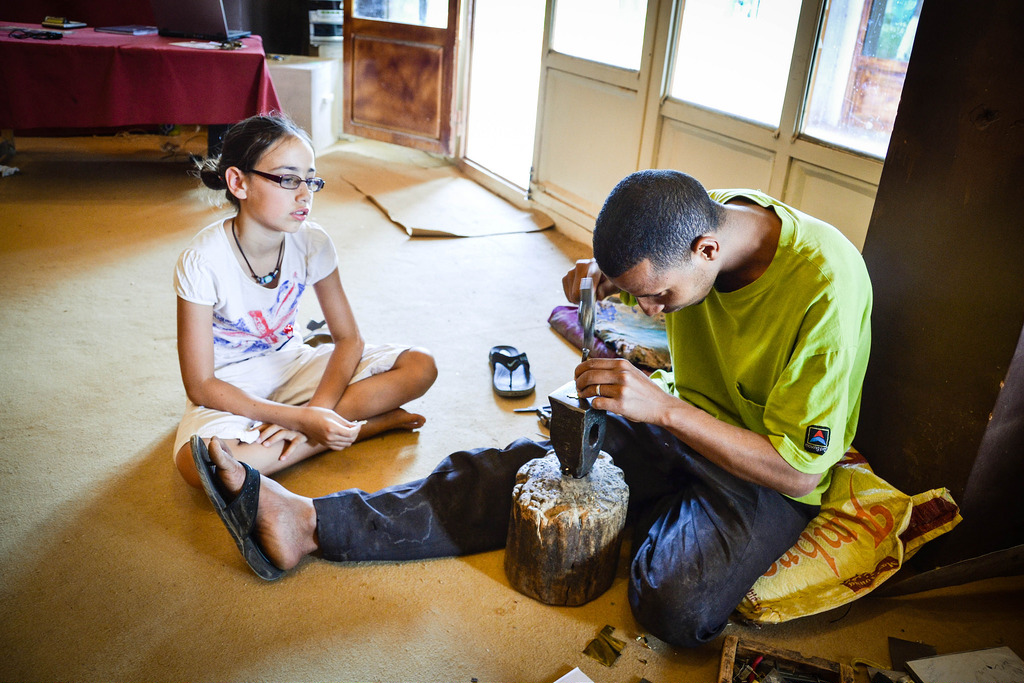
And of course bought a few daggers to protect our stash of rosewater and dried roses on the journey home. Though our daggers were not quite as exquisite as this ornamental display.
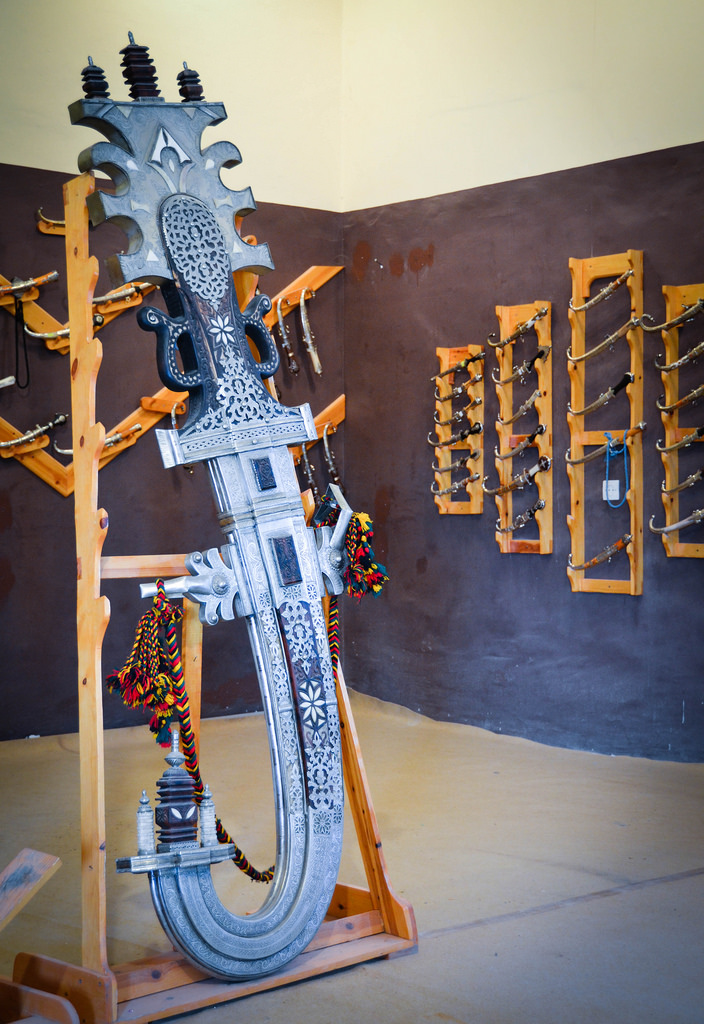
The daggers and roses were beautiful in equal measure and I was humbled to that both could bloom so vividly in this arid landscape. I look forward to visiting again but this time in May to be part of the rose harvest.
Do you use rosewater or rose syrup in your cooking? What lengths would you go to to protect your traditions and property?
